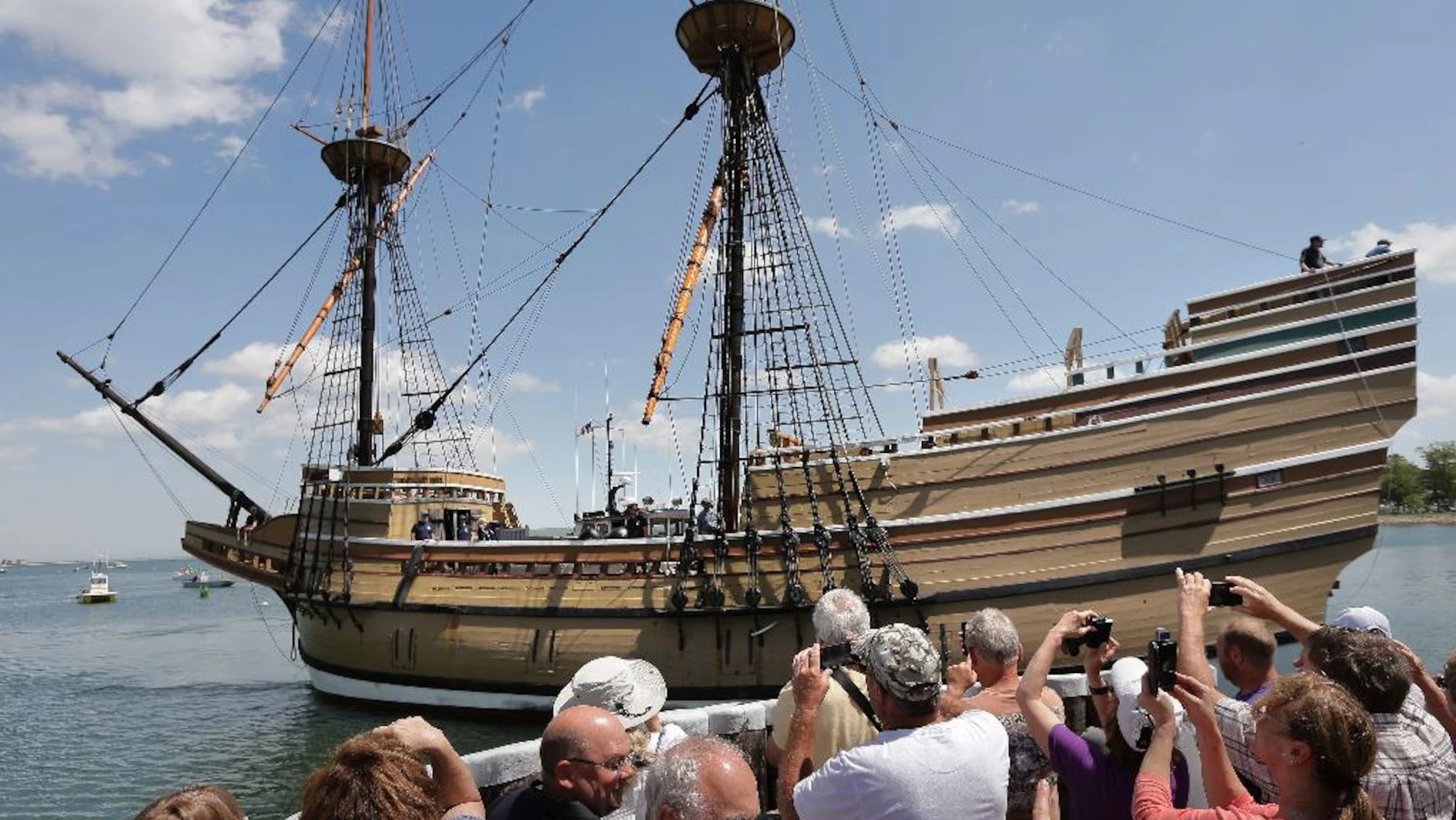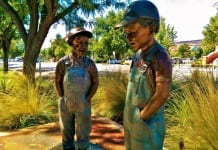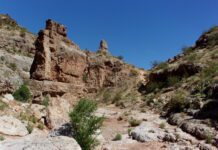400-year-old Pilgrims Bible stolen from US as part of $8M heist returns home: FBI
A rare Bible, stolen in the 1990s from the Carnegie Library in Pittsburgh as part of an extensive years-long heist with an estimated $8 million worth of items, has returned home.
Sen. Tom Cotton: It’s the 400th anniversary of the Pilgrims’ arrival. Why haven’t we heard more about it?
– By Sen. Tom Cotton | As Originally Published on Fox News –
We are marking a great American anniversary this month. In November 1620 a battered old ship called the Mayflower arrived in the waters off Cape Cod in what is now the state of Massachusetts. The passengers aboard the Mayflower were our nation’s first founders — or, as Daniel Webster called them, “Our Pilgrim Fathers.”
Webster delivered a speech to honor these Pilgrims on the 200th anniversary of the Mayflower’s arrival. Calvin Coolidge, then-governor of Massachusetts and president-elect, delivered an address on the 300th anniversary.
Regrettably, we haven’t heard much about this year’s anniversary because the Pilgrims have fallen out of fashion in elite circles. Just this week, The New York Times food section published an article that called the Pilgrim story, including the First Thanksgiving, a “myth” and a “caricature.” In place of these so-called “myths,” the liberal newspaper seeks to substitute its own, claiming the history of our nation is an unbroken tale of conflict, oppression, and misery.
But that’s a lie about our country and its founders. No matter what the revisionist historians at the Times cook up, the truth about the Pilgrims is more remarkable than any story or a holiday special. This Thanksgiving, it’s worth reflecting on why we celebrate the Pilgrims and their living legacy for our nation.
The Pilgrims were not the first European settlers to arrive in America, but they were exceptional nonetheless. As President John Quincy Adams put it, earlier European settlers were traders and adventurers motivated by “avarice and ambition.” They came principally to fish, farm, and trap furs. By contrast, the Pilgrims braved the rough seas “under the single inspiration of conscience,” as Puritan Separatists from the Church of England seeking the freedom to practice their faith.
Immediately after signing the compact, the signatories conducted a democratic election to choose their first governor.
This little compact, at less than 200 words, foreshadowed many of the principles of the Declaration of Independence and Constitution more than a century later, including faith in God, the natural equality of mankind, government by consent, and the rule of law.
Little wonder, then, that Adams referred to the Mayflower Compact and the Pilgrims’ arrival as the “birth-day of your nation.” Or that Webster, despite all the events preceding Plymouth, said “the first scene of our history was laid” there.
But that history was only just beginning. The Pilgrims still had to conquer the desolate wilderness and establish their settlement. And they still had to survive their first winter, which has come to be known as “the starving time.” P

Upon landfall, the Pilgrims “fell upon their knees and blessed the God of Heaven who had brought them over the vast and furious ocean,” according to the journal of William Bradford, a Pilgrim leader.
But it would be a “sad and lamentable” winter of disease, starvation, and death. Half the settlers died during that first winter. Seldom did more than a half-dozen have the strength to care for the ill, provide food and shelter, and protect the camp.
At that rate, there might not have been any camp left to protect by spring. But what can only be called a providential moment came in March when a lone Native American walked boldly into the Pilgrim’s camp and greeted them in English. His name was Samoset.
Samoset had learned some broken English by working with English fishermen in the waters off what is now Maine. He and the Pilgrims exchanged gifts and he promised to return with another Native American, Squanto, who spoke fluent English.
The Wampanoag chief, Massasoit, thus had good reason to form an alliance with the Pilgrims. Squanto introduced him to the settlers and facilitated their peace and mutual-aid treaty, which lasted more than 50 years.
Squanto remained with the Pilgrims, acting, in Bradford’s words, as their interpreter and “a special instrument sent of God for their good beyond their expectations.” He instructed them on the cultivation of native crops like corn, squash, and beans. He showed them where to fish and hunt. He guided them on land and sea to new destinations.
And you probably remember learning what happened next. As the Pilgrims recovered and prospered throughout 1621, they received the blessings of a bountiful fall harvest. The Pilgrims invited Massasoit and the Wampanoags to join them in a feast to express their gratitude to their allies and to give thanks to God for His abundant gifts. This meal, of course, was the First Thanksgiving.
Now the Thanksgiving season is upon us and once again we have much to give thanks for. But this year we ought to be especially thankful for the Pilgrims on the 400th anniversary of their arrival.
The story of the Pilgrims is not a myth or a caricature — it’s the living truth of history. What’s more, the faith, bravery, and wisdom of the Pilgrims place them in the American pantheon. Alongside the patriots of 1776, the Pilgrims of 1620 deserve the honor of America’s founders.
CLICK HERE FOR MORE FROM SEN. TOM COTTON
Viewpoints and perspectives expressed throughout The Independent are those of the individual contributors. They do not necessarily reflect those held by the staff of The Independent or our advertising sponsors. Your comments, rebuttals, and contributions are welcome in accordance with our Terms of Service. Please be respectful and abide by our Community Rules. If you have privacy concerns you can view our Privacy Policy here. Thank you!
Click here to submit an article, guest opinion piece, or a Letter to the Editor




